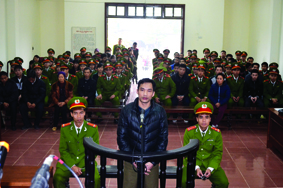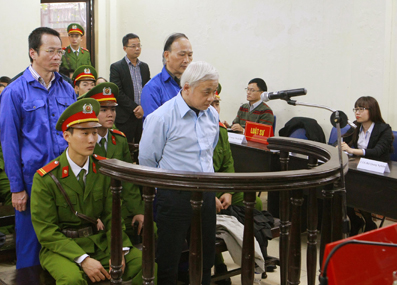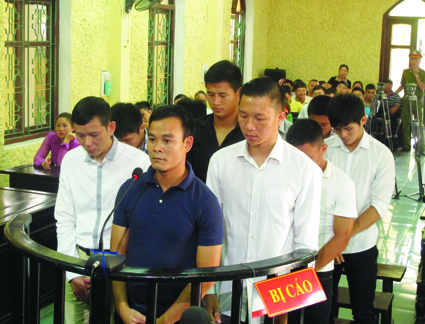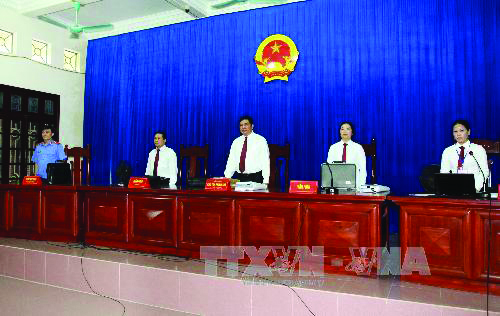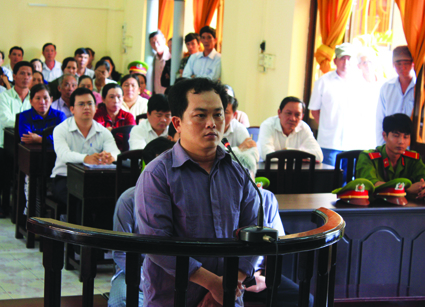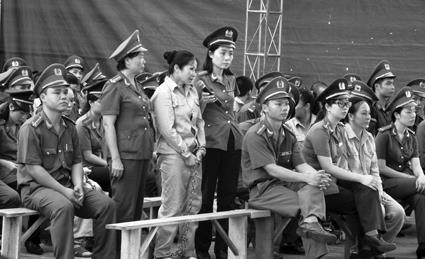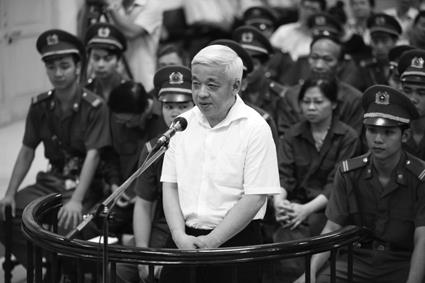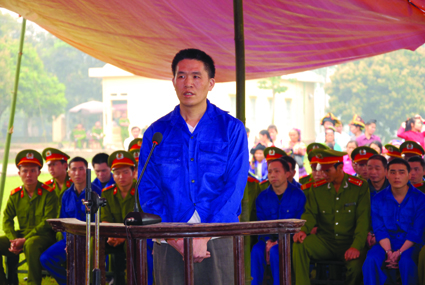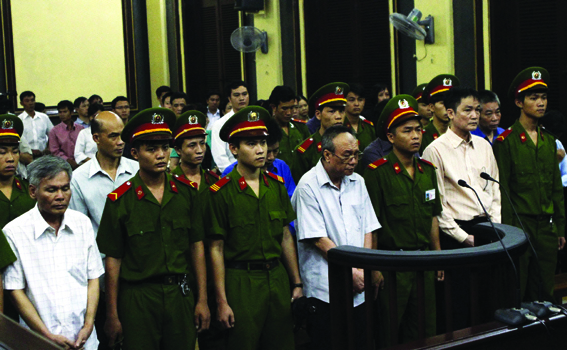Nguyen Duc Mai, LL.D
Former judge of the Central Military Court
Vietnam was among the first countries to ratify the 1989 Convention on the Rights of the Child. This Convention requires the member states to promote the establishment of a juvenile justice system, which is different from the normal justice system. However, the country has not yet created any juvenile court. The founding of such court has become imperative now in the context that juvenile delinquencies are on the rise and become more serious, the application of laws and regulations concerning juveniles has encountered many problems and difficulties, and the country is accelerating reforms of the court system on the new principles enshired in the 2013 Constitution.
In reality, the courts, especially at the district level, have not paid due attention to training their judges in adjudicating skills and psychological and educational knowledge for dealing with cases of juvenile crime. Trial panels usually lack assessors who are school teachers or Youth Union cadres adequately trained in law to be able to make their own judgments in the trial process independently from the judges.
The participation of defense counsels in legal proceedings as required by the Criminal Procedure Code (CPC) has not been duly respected by procedure-conducting agencies and persons. Investigators, procurators and judges often explain perfunctorily the right of legal counseling to juvenile offenders and their lawful representatives, and attribute the absence of defense counsels from legal proceedings against minors in many cases to such minors’ and their representatives’ refusal.
Though the presence of representatives of families and schools or related organizations of juvenile offenders at court hearings is required by the CPC, in many of these cases, only family representatives are summoned by procedure-conducting agencies. The rights of these representatives to exhibit documents and objects, make requests for change of procedure-conducting persons, make arguments or logde complaints about procedural acts and decisions of the courts when attending court hearings have not been guaranteed by the courts.
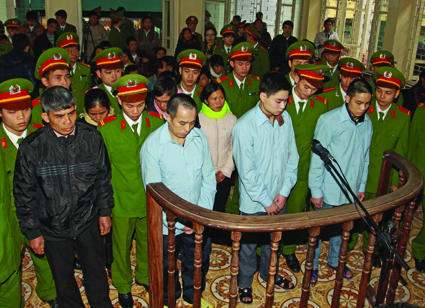 |
Under-18 defendant Le Van Luyen at the January 10, 2012 hearing for a particularly serious murder case in Bac Giang province__Photo: Doan Tan/VNA |
In many cases, procedure-conducting agencies have applied the measure of temporary detention against juvenile offenders not in accordance with Article 303 of the CPC (lacking the grounds prescribed in Articles 80, 81, 82, 86, 88 and 120 of the CPC). The supervisory measure has not yet received due attention and has been rarely applied to juvenile offenders. In some cases where it was applied, this measure proved ineffective because the parents or guardians of juvenile offenders did not receive specific and clear instructions on their supervisory duties and responsibilities.
The application of the provisions of the Penal Code (PC) regarding juvenile offenders has also faced some problems. Not a few judges, even chief justices, and courts have failed to fully grasp the principles for handling juvenile offenders established in Article 69 of the PC. They did not understand that juvenile offenders are just victims of social evils. In some cases they did not pay attention to determining the capacity of juvenile defenders to be aware of the danger of their anti-social behaviors, and to identifying the causes and conditions of their crimes. In other cases, they even based themselves on insufficient or unreliable personal identification documents to determine the age of offenders, ignoring the provision of Clause 5, Article 69 which requires imposition of lighter penalties on juveniles and restriction of the application of prison penalty.
The lack of proper and uniform understanding and guidelines among the courts has resulted in their different ways of applying Articles 46, 47, 48 and 74 of the PC on extenuating and aggravating circumstances, lighter penalties, and prison terms which must not be longer than half or three-quarters of those applicable to adult convicts, to juvenile offenders. Meanwhile, for certain reasons, such as habitual ways of working, lack of responsibility, limited professional capability, and public pressure, many judges refrained from applying penalties not involving deprivation of liberty (caution, fine, non-custodial reform and suspended sentence), giving penal liability exemption to juvenile offenders or consigning them to their families for supervision and education.
The need for family and juvenile court
Education of juvenile offenders to help them reintegrate with the community and develop in a healthy manner constitutes one of the principles for handling juvenile offenders. Therefore, the founding of a juvenile court is not only an objective requirement of life but also an important requirement of the judicial reform under the Party Central Committee’s Resolution No. 49-NQ/TW and the realization of the international commitments on protection of political and civil rights and the rights of children.
A survey conducted by the Supreme People’s Court in 2010 revealed that 91 percent of respondents and a majority of legal experts agreed with the founding of a juvenile court to settle cases and matters related to minors, including juvenile crimes. The primary mission of this court would be to re-educate and reform juvenile offenders rather than to punish them, and make judgments on different handling measures, mainly judicial measures, not involving the deprivation of their liberty. The founding of this court would help the society have a deeper awareness about the development of children, better meet the development needs of children and ensure safer and better life for them under the motto “Children today, the world tomorrow.”
It is necessary to study and fulfill on scientific grounds the requirements for the founding of a juvenile court regarding legal framework, organizational structure, jurisdiction, personnel and physical foundation.
In our opinion, given the present practical conditions, the juvenile court should be founded as a family and juvenile tribunal in the people court system (like the existing civil, labor, administrative and economic tribunals) with jurisdiction to settle marriage and family cases involving minors or administrative and criminal violations committed by minors (except particularly serious crimes), and organized at three levels (district-level, provincial-level and supreme courts). In the future when the court system will be organized at four levels (regional first-instance, provincial-level, superior and supreme courts), the family and juvenile court will be a tribunal of regional first-instance, provincial-level and supreme courts. However, for a long term when economic, social and intellectual standard conditions attain a certain level, these tribunals should be organized into three-level system independent from the established courts.
A family and juvenile court should have judges who possess ethical quality, anti-crime experience, particular adjudicating skills, and knowledge about juvenile psychology and educational science. The people’s court system should develop a basic training program for such judges, covering:
(i) Necessary knowledge about the psychology and education of children in general and minors in particular;
(ii) The Convention on the Rights of the Child, the Law on Protection of, Care for, and Education of, Children, the criminal, civil, marriage and family policies of the State toward children; and,
(iii) Particular skills for adjudicating cases involving minors (administrative, criminal, civil and marriage and family violations).
Investigating agencies and procuracies should also have similar training programs for their investigators and procurators in charge of settling cases involving minors.
District- and provincial-level people’s courts (or regional first-instance and provincial-level people’s courts in the future) should build separate courtrooms for adjudication of cases involving minors. In these rooms, the seats of judges, defendants and other participants should be arranged close to one another, there should be no bars and handcuffs, and defense counsels and family and school representatives should be allowed to sit by defendants. The interior decoration and equipment in these rooms should also be suitable to the physio-psychology of juvenile defendants, avoiding unnecessary tension during the trial.
Improving the legal framework on juvenile justice
The 2013 Constitution has provided a legal ground for improving domestic regulations on juvenile justice and the Law on Organization of People’s Court has been recently revised in compliance with the new Constitution. But the improvement of substantive and procedural provisions of the PC and CPC regarding minors is also of extreme importance.
Regarding the CPC, we recommend revision of Articles 305 and 307 as follows:
A new clause (Clause 2) should be added to Article 305 as follows:
“2. Any case in default of a defense counsel from legal proceedings against the accused or defendants who are minors shall be regarded as a serious violation of legal proceedings, unless such accused and defendants and their lawful representatives refuse defense counsels.”
Current Clause 2 of Article 305 should be revised into new Clause 3:
“3. In case the accused or defendants who are minors cannot select defense counsels, their lawful representatives shall select defense counsels for them. In case the accused or defendants who are minors and their lawful representatives cannot select defense counsels, investigating agencies shall request bar associations to assign lawyers’ offices to appoint defense counsels for them or propose the Vietnam Fatherland Front Central Committee or the Front’s member organizations to appoint defense counsels for members of their organizations, unless the minors and their lawful representatives refuse.
In case the accused or defendants who are minors and their lawful representatives refuse defense counsels, a written record of the refusal shall be made and kept in the case file.”
Clause 1 of Article 307 should be revised and divided into Clauses 1 and 2 as follows:
“1. The trial of defendants who are minors shall be conducted by a judge. For defendants who commit very serious or particularly serious crimes, the trial panel must include an assessor who is a teacher or a Ho Chi Minh Youth Union cadre.
2. In all circumstances, the trial of cases involving defendants who are minors may be conducted neither at public hearings nor by a circuit court. The disclosure of personal information of the accused or defendants who are minors which may affect their life in the future is prohibited, unless it is permitted by a competent agency.”
The following Clauses 3 and 4 should be added to Article 307:
“3. The seats of the presiding judge and participants in a courtroom for trial of cases involving minors shall be arranged in order to reduce tension and fearful feeling for minors. No bars, handcuffs and other coercive equipment shall be used during trial, unless minors take negative acts or show an opposing attitude.
4. The inquiry of defendants who are minors must comply with Article 209 of this Code and be suitable to the age and growth of defendants. The explanation about rights, obligations and trial procedure and questions at hearings must be simple and clear to ensure that minors and their family representatives properly understand and answer questions.
The trial panel shall let minors present their opinions, viewpoints and aspirations and consider these opinions and aspirations before making judgments.”
Current Clause 2 should be made new Clause 5.
Regarding the PC, we find its current provisions on criminal justice for juvenile offenders relatively complete and fair despite recommendations for lowering the age at which minors can bear penal liability and imposing life imprisonment or death penalty on minors committing very serious or particularly serious crimes.
However, to encourage and facilitate the community reintegration of juvenile offenders, we suggest removing the words “co the” (may be) from Clause 2, Article 69, which should be re-written as follows:
“2. Juvenile offenders are entitled to exemption from penal liability if they commit less serious crimes or serious crimes which cause no great harm and involve many extenuating circumstances and they are received for supervision and education by their families, agencies or organizations.”-
